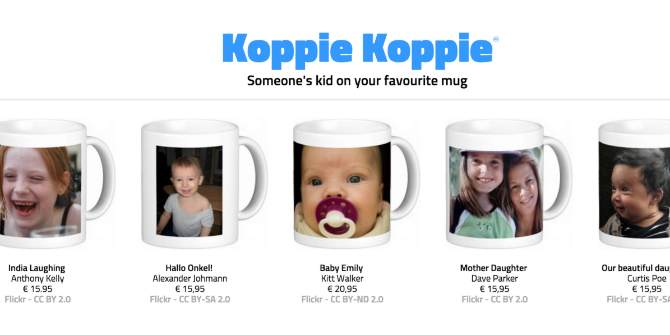 For www.parenting.digital, Claire Bessant, Emma Nottingham and Marion Oswald discuss the impact of COVID-19 on family use of technology and the encouragement that families are receiving from businesses, schools, the media and others to share images of their personal life during lockdown. Are the COVID-19 response measures altering public attitudes and cultures towards the sharing of data and information about children? What are the possible future implications for children’s privacy?
For www.parenting.digital, Claire Bessant, Emma Nottingham and Marion Oswald discuss the impact of COVID-19 on family use of technology and the encouragement that families are receiving from businesses, schools, the media and others to share images of their personal life during lockdown. Are the COVID-19 response measures altering public attitudes and cultures towards the sharing of data and information about children? What are the possible future implications for children’s privacy?
With lockdown and social distancing measures implemented in many countries, the internet has proved vital in affording people a means to stay connected, entertained and educated. Many of us currently rely upon online platforms for work, for schooling, to keep fit, to maintain contact with friends and loved ones, and to keep ourselves occupied. Parents, keen to keep children busy, have been hosting virtual play dates. It has been possible to hold family gatherings, such as Mother’s Day, only through such mediums as Facetime or Skype.
At a time when it is impossible to meet friends and family, it is inevitable that many parents are turning to social media to share the highs and lows of family life in lockdown. There is already much evidence that even in ‘normal’ times such behaviours can help parents to face isolation and can provide them with much needed practical and emotional support.
Share your lockdown pictures
There is evidence that, since lockdown, parents have been actively encouraged to share details of their families lives online. Parents have received pleas from the national media, from local newspapers and from organisations such as Historic England, to share pictures revealing the story of their lives during lockdown. Schools, businesses, sports clubs and charities across the United Kingdom have been encouraging parents to film their families carrying out tasks or challenges and then ‘tag’ themselves and the organisation on social media. Families are being asked to send pictures and videos of how their communities are supporting NHS workers, even members of the royal family have responded, using Twitter to show their children offering their support for carers.
The impact on privacy
In recent years, even prior to the COVID-19 outbreak, there had been growing concern around the depiction of children on social and digital media. A number of academics have identified that such online disclosures of children’s images and information may pose threats to children’s privacy and safety, and may result in parents, and others, determining children’s digital identity before children themselves engage with the online world. The risk of child exploitation has also been identified, especially where parents use YouTube vlogs and ‘sharent’ for financial gain.[1]
Since the WHO declared the COVID-19 pandemic, numerous articles have emerged raising concerns about how individuals can protect their privacy. Concerns have been expressed about Government’s seeking to track our movements or monitor our health; about companies scrutinizing the activities of employees working from home; about the security of virtual meeting platforms such as Zoom; and about the privacy settings of apps, such as Tiktok or Houseparty, which have become essential for teenagers seeking to maintain contact with friends during lockdown. The Council of Europe recently released a Joint Statement on the right to data protection in the context of the COVID-19 pandemic, in which it highlights the need for personal data to be protected in the responses to the current pandemic including the various measures in place for business and education activities.
Strikingly, however, there has been little discussion regarding the specific impact of digital and social media on children or the risk to children posed by sharenting. This is notwithstanding that where families are locked down together at home, parents will be spending more time with their children, and this provides them with greater opportunity to take and share images of their child, possibly without the child knowing. It fails also to recognise that the risks for children are potentially greater, especially for younger children, as they are entirely reliant on adults for protection.
The impact of COVID-19 on sharenting behaviours and a suggested response
A 2017 Ofcom survey suggests that many parents understand the risks posed by sharenting and that many choose not to ‘sharent’ in order to protect their children’s privacy. Still, a significant number of parents regularly share images of their children, the report indicated. It is possible that more parents are now sharenting than before – the messages from the UK Government in March 2020 were clear, stay at home, engage with others online.
Calls have previously been made for the Government to provide more guidance to parents about sharenting. It has been suggested that online platforms should have a duty of care to children, that they should alert parents to the risks sharenting may pose, with warnings being shown where social media systems detect that a person intends to post images of young children without privacy settings enabled. With no concrete steps having been taken towards implementing these suggestions, it is entirely possible that, at a time when there are few alternatives to the digital, parents have been lured by the benefits that online platforms have to offer, without being aware of the risks of harm.
Perhaps of greater concern, however, is the potential longer-term impact of the pandemic on societal attitudes to sharenting. Previously the media have entered into open debate about the risks and threats posed by sharenting, and in some instances have taken steps to offer advice to parents on these risks. A new stance, however, appears to be emerging, with the media, hungry for heart-warming stories and pictures of families tackling the challenges of lockdown, encouraging parents to share images, failing to acknowledge that children may not wish their images to be shared online or that risks may be posed to children as a result.
We have already seen that some broadcast programming is in danger of embedding a privacy-intrusive norm in relation to the disclosure of information and images of ‘Generation Tagged’. The current position where schools, sporting associations and businesses are similarly encouraging individuals, including children, to undertake and post videos of them undertaking challenges, similarly raises concerns about society’s need and desire to ‘see’ what children are doing and society’s failure to appreciate the privacy needs and rights of children.
Whilst it is unclear whether the attitudes that have emerged during the COVID-19 pandemic will continue post-lockdown, the risks and potential harms to children must be addressed. Government guidance for parents, schools, businesses, and the media, on the risks and benefits of sharenting is necessary. With society evermore reliant on digital communication, and with the ‘socially-virtual’ environment in which we are currently living placing additional power and control in the hands of online platforms, a greater emphasis on the responsibilities of online platforms is undoubtedly needed. The mainstream media should also be charged with a duty to act responsibly towards children and should be discouraged from soliciting images of young children in a digital environment where there is little control over dissemination.
‘Generation Tagged’ are the first generation to endure being closely documented on social media as part of growing up but, just as conversation was growing around the issues associated with this, responses to the COVID-19 pandemic have placed a renewed emphasis on living our lives online, effectively shutting down the conversation on the risks to children that this might entail. The digital world has and will continue to have many benefits during and after the pandemic, but the state must act to ensure that risks to children are minimised.
[1] The children affected by such online disclosures are, using the term coined by Oswald, James & Nottingham, ‘Generation Tagged’
First published at www.parenting.digital, this post gives the views of the authors and does not represent the position of the LSE Parenting for a Digital Future blog, nor of the London School of Economics and Political Science.
Featured image: photo by Jonathan Borba on Unsplash





